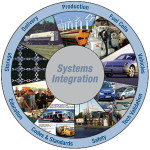
Things they don’t tell IT sales people
Most people in the IT Services Sales industry are not intimately aware of the value of their work to their consulting firms. Its no surprise then that most are under-compensated or sell themselves short. Here are a few things that they won’t normally tell you (or things they do tell that aren’t entirely true)
1. Most of the revenue is made from recurring work
Consulting firms early hardly anything from new customers. They effort required to acquire a new account in today market means that the cost of acquisition is barely recuperated from the first few projects. What most companies won’t make so obvious is that one project usually leads to a number of recurring projects. Development projects lead to testing, release and maintenance assignments. And one project usually leads to others. Maintenance projects are also typically more profitable than development projects.
Sales people need to position themselves to be able to maximize their percentage on the OVERALL revenue, not just the first project or the first few months of business.
2. YOUR Relationships will no longer remain yours
Most relations in the IT industry last years, if not decades, far outstripping the average employee job. Sales people will work hard to setup relationships. Once projects begin, different teams are introduced to take over the relationship. This is both troubling for customers and should be a concern for sales people. I know many a circumstance where sales people weren’t even aware of new POs. Also, while projects can stop and go and pipelines can sputter depending on client’s circumstances, RELATIONSHIPS PERSIST. We have even had clients come back after many years of inactivity if they remember you for good work.
Point being: Relationships are a salesman’s key assets. Try your best to maintain as much control of these as possible.
3. What if you don’t find a client
This question is what differentiates an entrepreneur from a sales person. It is also the question that sets up compensation models. Low base-High commission structures usually mean a low confidence in the sales man’s ability. Sales people (some of them) prefer high base salaries because it gives them a sense of security for factors that may be beyond their control. Keep the big picture in mind here, most consulting firms will spend 10% of their revenue on sales. This means your NET compensation will not exceed 10% of the money you bring in. Ofcourse not everyone will succeed (their base salaries will be taken out of this pool), there is non billable management and overheads of all manner and form all of which eats away from the same pool. The question to ask yourself is : If you don’t perform, how long will the company tolerate you anyways? And do you want to be the person who eats away other people’s pool.
If you are worth your weight in commissions, you should be focusing increasing the top line beyond 10% rather than quibbling with the control structures under this budget. This may mean having to take on the burden of risk (say through a comissions-only structure) but will pay off big time in the long run.
4. The big one
Remember that the compensation models of employees are dependent on TYPICAL numbers across the industry. Most of work you will bring in/do is also going to be of a typical revenue, costing a typical amount to execute, hence resulting in a typical amount of margin, resulting in a typical amount of interest from your business’s owners. Occasionally though, you will get a great assignments. Everyone gets those. For example when you find a client that has a particularly high need for your solution and has deep pockets. If you are a high-base employee, the benefit of this is going to get passed on to your company, however if you can manage to make the most of it, these projects are usually big enough to take you several steps closer to your retirement.
Most of the work you bring in will be hand-to-mouth but keep yourself free and nimble enough to gain from the inevitable big one. Most successful sales people I know can still recall that one project that set them up. The question is, are you ready to make the most of it?
5. Position to Upsell
Most consulting firms, now a days, need to specialize. This means that they can only work on a very small portion of potential opportunities your contacts can generate. Most clients now a days have diversified technology portfolios (due to changing needs, vendor lock-in concerns etc). If you represent an organization that allows you only take on a smaller subset of needs, then you are not maximizing your ROA on your contacts assets.
Sales people need to align themselves to their customer’s needs and setup relationships with delivery firms that allow them to work with more than one if necessary
Allied Consultants is an IT consulting firm with a unique business model. We view sales people as partners in the consulting space and give out a typical commission of 30% of revenue throughout the lifetime of the account. Find out more about our partnership program






